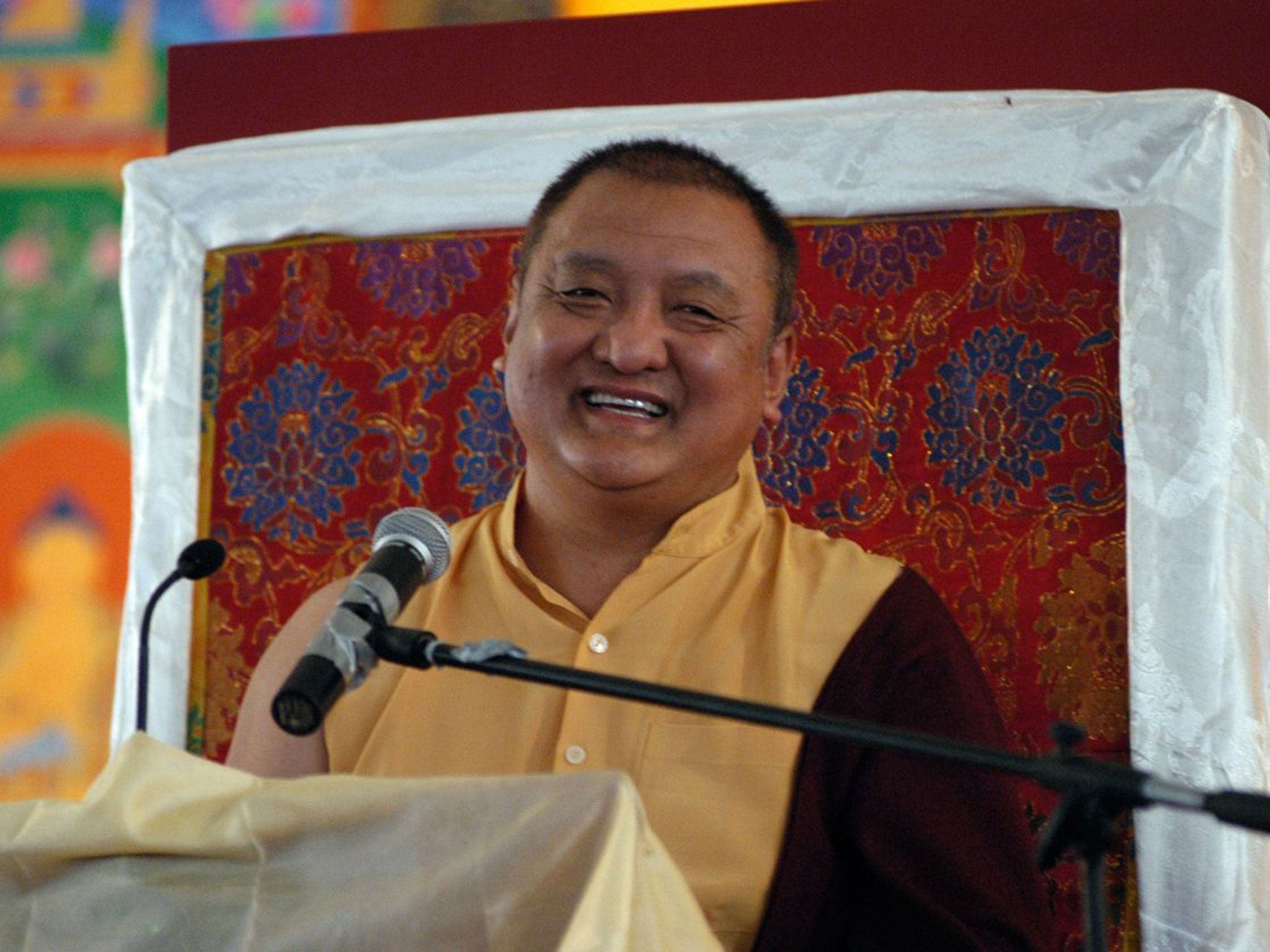Did a senior Tibetan Buddhist leader's funeral plans fall foul of Himalayan power politics?
The Sharmapa held a senior position within the Karma Kagyu school of Tibetan Buddhism, yet he was not without controversy

Your support helps us to tell the story
From reproductive rights to climate change to Big Tech, The Independent is on the ground when the story is developing. Whether it's investigating the financials of Elon Musk's pro-Trump PAC or producing our latest documentary, 'The A Word', which shines a light on the American women fighting for reproductive rights, we know how important it is to parse out the facts from the messaging.
At such a critical moment in US history, we need reporters on the ground. Your donation allows us to keep sending journalists to speak to both sides of the story.
The Independent is trusted by Americans across the entire political spectrum. And unlike many other quality news outlets, we choose not to lock Americans out of our reporting and analysis with paywalls. We believe quality journalism should be available to everyone, paid for by those who can afford it.
Your support makes all the difference.Two weeks ago, the remains of Shamar Rinpoche, a senior yet controversial Tibetan Buddhist teacher, were flown from Delhi to a monastery in north-east India where his coffin was met by brightly-dressed monks playing trumpets and cymbals.
Shamar Rinpoche, 62, who held the title Sharmapa, had died of a heart attack in Germany in June. His supporters wanted to fulfil his wishes and transport his body first to Kalimpong, in India’s north-east, and then to Nepal for a funeral service at an institute he had established.
But his supporters around the world fear their teacher may have fallen foul of power politics playing out in the Himalayas. Having initially granted the go-ahead for his body to be taken to Nepal, the authorities in Kathmandu have now withdrawn permission. It has been reported they did so under pressure from neighbouring China, which does not want to encourage Tibetan Buddhism in Nepal.
“It’s a very dramatic situation,” said Khenpo Mriti, administrator of the Karmapa International Buddhist Institute in Delhi, where the Sharmapa’s coffin was kept after arriving from Germany. “We are in trauma and in trouble. We do not know what to do.”
The Sharmapa held a senior position within the Karma Kagyu school of Tibetan Buddhism, yet he was not without controversy. In 1992, he broke from the opinion of many other senior teachers and declined to recognise the person identified as the 17 Karmapa, who heads the Karma Kagyu school.
Indeed, he instead identified his own candidate. Today, the Karma Kagyu school remains split over who is its true head. The Chinese government recognises the Karmapa that the Sharmapa refused to recognise.
Despite this, his supporters were planning a large funeral service for him in Nepal and were due to transfer his body there on Monday Representatives of other branches of Tibetan Buddhism, including the Dalai Lama’s school, were expected to attend.
Over the weekend, the Kathmandu Post newspaper reported that a source in the Nepalese home ministry said the decision to withdraw permission was taken under pressure from the Chinese embassy. It claimed the Chinese objected to a representative of the Dalai Lama attending and did not want a large rally to take place.
A spokesman for the Dalai Lama said a representative based in Nepal would likely have attended the funeral.
Since he fled Tibet in 1959 and set up a Tibetan government in exile, the Dalai Lama has been repeatedly denounced by the Chinese authorities. Meanwhile, his so-called Middle Way of trying to secure autonomy but not independence for Tibet has made little progress. In the last few years, dozens of Tibetans have immolated themselves over China’s actions.
Nepal, which sits between India and China, has long been the subject of efforts to lever influence by both of its huge Asian neighbours. In recent years, it has sought to control the Tibetan freedom movement and has regularly detained monks and their supporters.
Robert Barnett, director of the Modern Tibet Studies Programme at Columbia University in New York, said the Sharmapa had not held a position in the Tibetan government and had not been a political figure.
There was much about Nepal’s actions that did not make sense, he said. Yet he added: “Nobody would be in the least bit surprised if Nepal were put under pressure by China.”
A spokesman for Nepal’s home ministry, Laxmi Prasad Dhakal, confirmed permission had been given and then subsequently withdrawn.
Mr Dhakal said officials at the Nepalese Embassy in Delhi had granted permission when it was believed the Sharmapa held a Nepalese passport. He said it was then discovered he held a Bhutanese passport and officials said permission could not be given as there was no legal provision for allowing foreigners to travel to Nepal for a funeral.
Asked whether Nepal had acted under pressure from China, he said: “No, no, no. That’s not true – 200 per cent not true.”
In an interview at his office at the Buddhist institute in Delhi, Mr Mriti, the administrator, said supporters of the Sharmapa were deeply upset by what had happened. “The Sharmapa did lots for Nepal. He had requested his remains be cremated in Nepal. That is the main reason we are trying to take him to Nepal.”
Join our commenting forum
Join thought-provoking conversations, follow other Independent readers and see their replies
Comments